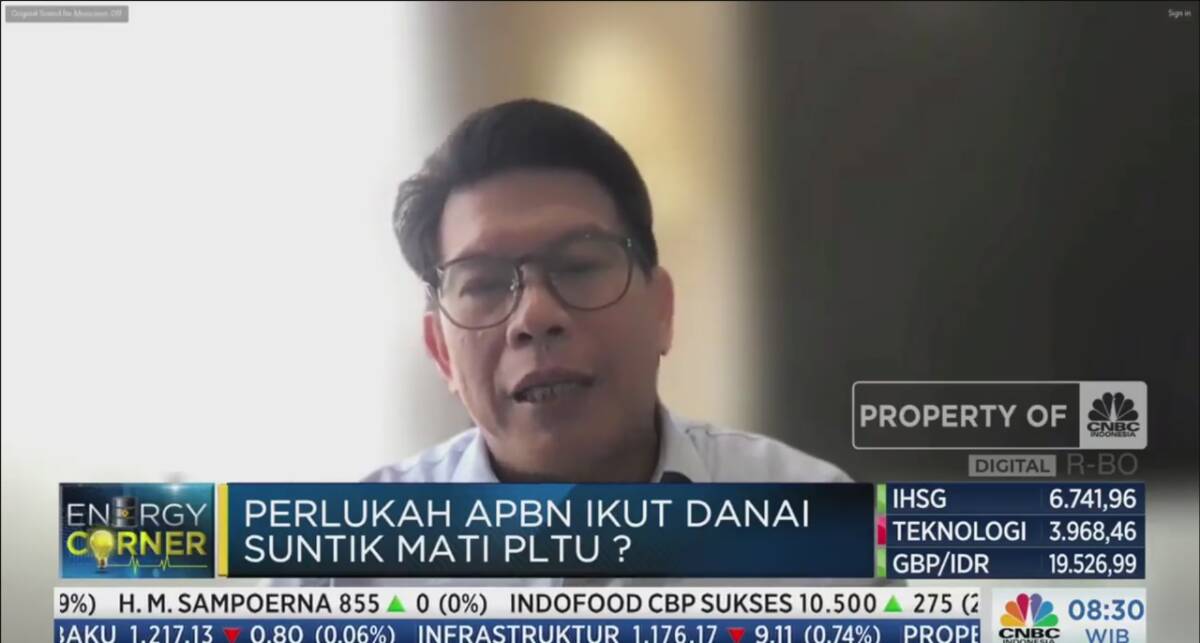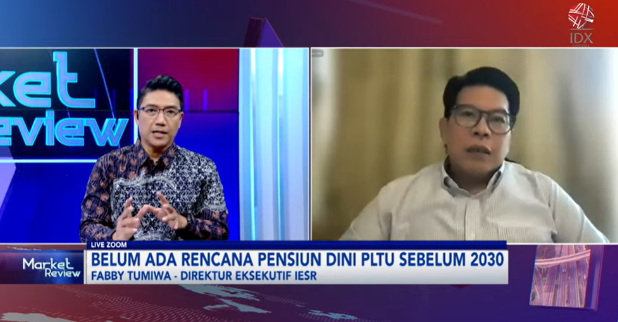The clause regarding the fulfillment of Domestic Component Level (TKDN) is considered to be the 'problem' that has caused the stagnation of funding from international financial institutions, at least for 14 new renewable energy (NRE) power plant projects in the country.
Read more on Bisnis Indonesia.

Jakarta, October 24, 2023 - Accelerating the early retirement of coal-fired power plants (CFPPs) and establishing renewable energy-based power plants is crucial to achieving our energy transition targets. The government has released financing guidelines outlined in the Regulation of the Minister of Finance (PMK) Number 103 of 2023 to facilitate this process. This regulation aims…

Jakarta, October 20, 2023 - Climate change has become a significant global issue in the 21st century. Reducing greenhouse gas (GHG) emissions and achieving Net Zero Emission (NZE) have become essential objectives. To achieve NZE, switching from fossil fuel-based energy sources like coal to clean and sustainable energy sources is crucial. Therefore, a necessary step…

Jakarta, October 17, 2023 - Marking the 10th anniversary of the Belt and Road Initiative (BRI) launch, China is hosting the third BRI International Cooperation Summit or Belt and Road Forum in Beijing on October 17-18, 2023. China's theme is "High-quality BRI Cooperation: for Common Development and Prosperity" at this year's summit. The Institute for…

Jakarta, September 18, 2023 - An energy transition in the electricity sector that prioritizes equitable principles and is affordable for society requires a combination of strategic factors, long-term commitment, and policies that lead to investment opportunities for the development of renewable energy and technological innovation. This was stated by Deon Arinaldo, Program Manager of Energy…

Jakarta, September 18, 2023 - The Indonesia Clean Energy Forum (ICEF) and the Institute for Essential Services Reform (IESR) are urging Indonesia to accelerate the transformation of the electricity sector. This has been the focal point of discussion at the 2023 Indonesia Energy Transition Dialogue (IETD), organized by ICEF and IESR in collaboration with the…
ASEAN countries are estimated to need up to US$ 987 billion to achieve the short-term energy transition target in 2030 to achieve a net zero scenario in 2050.
Read more on Kata Data.
